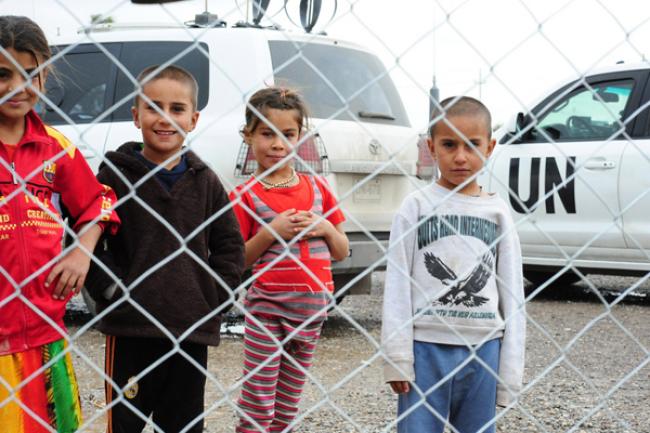21 Oct 2014

“ISIL and associated armed groups have perpetrated widespread and systematic violations of international human rights and international humanitarian law, which in some instances may amount to war crimes and crimes against humanity," Šimonović said in astatement released by the UN Office of the High Commissioner for Human Rights (OHCHR), as he wrapped up his visit to the region by meeting the Prime Minister of the Kurdistan region Government.
Šimonović said Takfiri groups, or so-called ISIL, are terrorizing the local population, imposing on them brutal measures based on their “extremely radical and wrongful interpretation of Islam,” particularly members of religious and ethnic minorities including Christians, Kaka’ee, Shabaks, Turkmen, Sabaean Mendeans, Yezidis and others.
“Among countless victims, I met with a 12-year-old girl who escaped sexual slavery, a father whose four sons were murdered because they refused to convert to Islam, and a boy who survived a mass execution – including of his father and brothers – despite being hit by six bullets," the envoy recalled of his trip.
ISIL leaves Yezidis “no option except to convert or die,” he said, adding that the militant’s actions toward Yezidi peoples may amount to an “attempt to commit genocide.”
Well-resourced, armed and trained, and even supported by some local groups, ISIL continues to brutally violate the local population “with the aim of suppressing, expelling or destroying targeted ethnic and religious communities.” And these “brutal tactics” are causing divisions between those communities to deepen, Šimonović said.
“Community leaders, elders, as well as religious authorities, must raise their voices and condemn violations of international human rights and humanitarian law, and demand the care and protection of the victims, no matter their ethnic, religious or other affiliations,” he added.
While the new Iraqi Government seems well-intentioned, it needs broad local and international support to put an end to the atrocities and overcome attempts to divide society.
During his visit, Šimonović met with Iraq’s Minister for Human Rights, Mohammed Madhi Ameen Al-Bayati, Speaker of the Council of Representatives, Dr. Salim al-Jabouri, and the Prime Minister of the Kurdistan Regional Government, Nechirvan Barzani.
The Assistant Secretary-General also discussed with Government and civil society representatives ways to address some of the chronic human rights challenges, including corruption, problems with the administration of the criminal justice system, and the rights of women.
Meeting with Government officials, Šimonović, argued for Iraq’s accession to the Rome Statute of the International Criminal Court (ICC), and the immediate acceptance of its ad-hoc jurisdiction for crimes that have been committed during the ongoing conflict.
Legislative changes that make war crimes, crimes against humanity and genocide punishable under the criminal laws of Iraq and the Kurdistan Region would send a clear message of the commitment to bring perpetrators of those crimes to justice.
Šimonović and other members of the OHCHR delegation also visited five camps for displaced persons in the Dohuk and Erbil provinces of the Kurdistan region of Iraq. According to OHCHR, two million civilians have been displaced by the current conflict within Iraq, and nearly one million of them are displaced in the Kurdistan region of Iraq.
It is absolutely critical for Iraq’s Central Government, the Kurdistan Regional Government and the international community to effectively coordinate to help all these people prepare for the brutal and approaching winter months.
“Winter is not yet here, but I have already seen tents that have collapsed from the rain, despite all night efforts of the families living in them,” Šimonović said.
“If additional measures are not immediately introduced, and especially if there is a new wave of displacement, those belonging to vulnerable groups, such as children, aged people, people with disabilities and those in need of medical assistance will be at risk.”
Refugees in the Bahirka Camp near Erbil in Northern Iraq. Photo: UNAMI